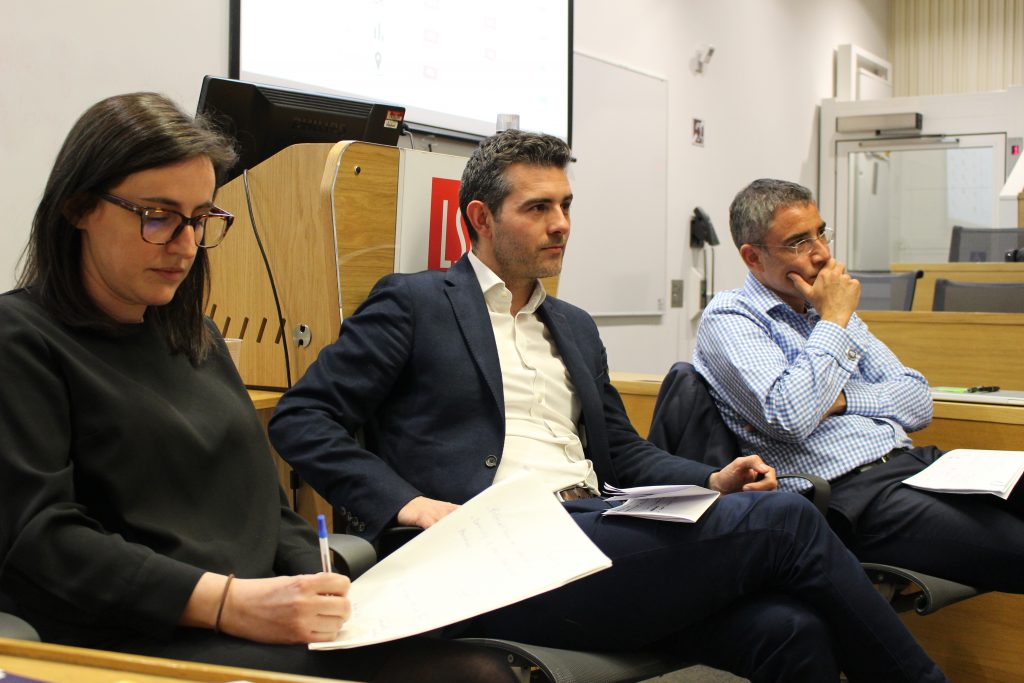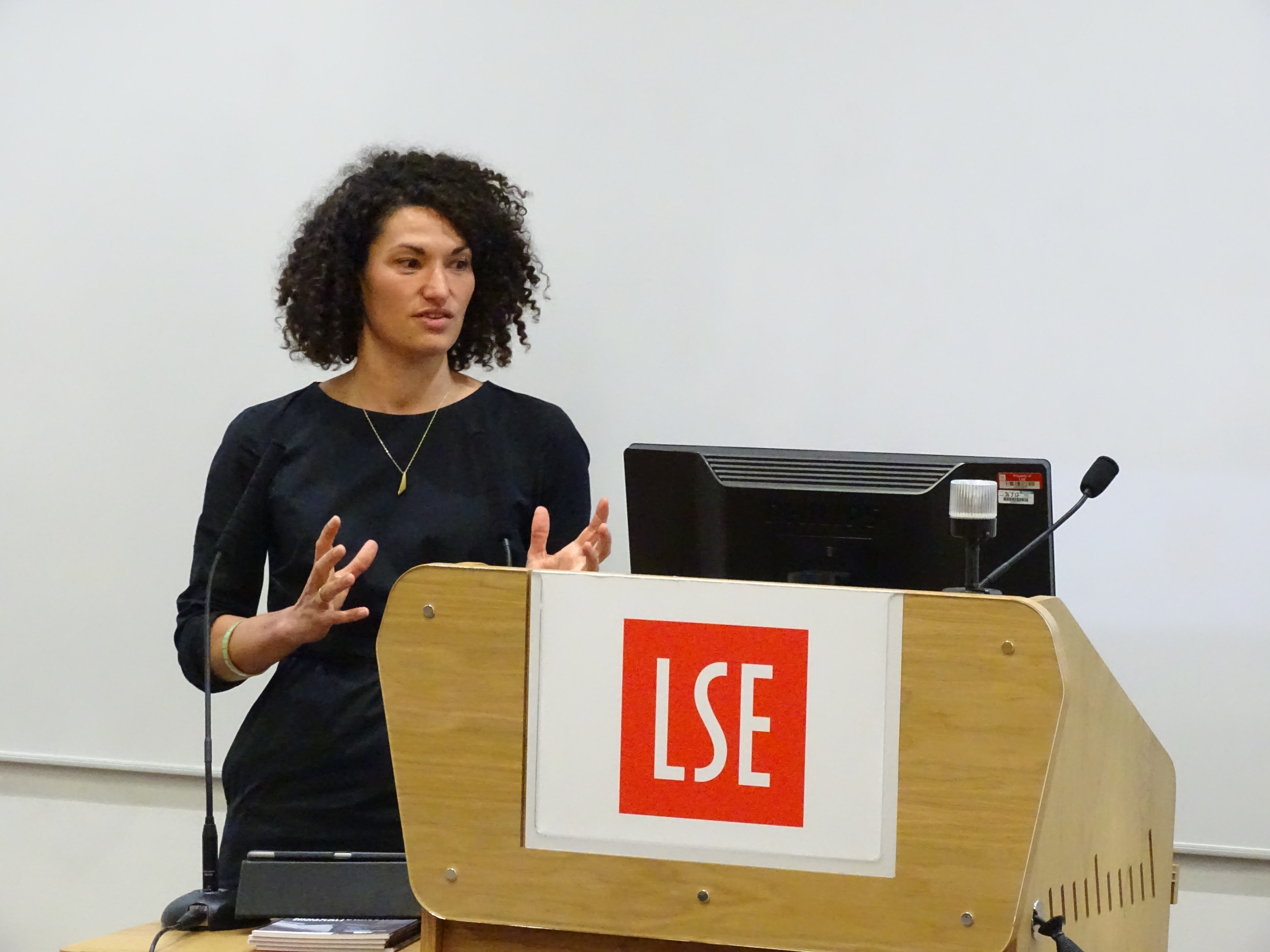In a city like London, it can be easy to take growth for granted at times. Since the early 1990s, the population and economy of the city have grown substantially, putting pressure on housing, transport, and a number of other institutions in the process. While much of this is attributable to extra-national forces like globalisation and technological progress, it doesn’t mean that we are powerless to influence the course of the city’s growth on a local level. It is worth asking why this type of growth has taken place, what its limitations are, and how we can steer it in a more productive direction. Contained within this discussion are the multiple and often conflicting roles that London can play as a global city, as the UK’s capital, or simply as one’s home. These are exactly the kind of conversations that took place during the fourth event in the London Talks series, What type of growth should we be aiming for? Silkie Whitworth of the Ministry of Housing’s Cities and Local Growth Unit chaired our discussion on the topic, with Neil Lee and Alex Jan presenting their own perspectives, experiences, and case studies.

(Click here to access a PDF of Alexander Jan’s PPT presentation. Click here to access Neil Lee’s article on inclusive growth in cities which appeared in Regional Studies journal. Scroll down to watch video recordings (screen and audience views) of the event as it happened. Or click here to listen to an audio recording of the event.)
Dr Neil Lee, Associate Professor of Economic Geography at the LSE, spoke first about the concept of inclusive growth. Though London has seen stellar growth performance over the past few decades, this growth hasn’t trickled down to everyone in the city: 3 in 10 Londoners still live in poverty. It is against this backdrop of unequal outcomes that there has been a spike of interest in inclusivity. Inclusive growth has been reflected in the policy of the Mayor of London and has been proposed and discussed by a number of different parties as a measure to which aspire. But what does it mean? And how do we achieve it? Lee described inclusive growth as an example of what Ann Markusen calls ‘fuzzy concepts’: ideas that are poorly defined and means different things to different people. Add to this the conflicting perspectives and evidence about how to drive growth at all—much less inclusive growth—along with the fact that local authorities have little power over wider social policy, and the unforeseeable impact that forces like trade and technology have on London, and it becomes apparent that inclusive growth might not be so easy to pin down. That being said, inclusive growth still is a valuable concept in that it centres distribution as a key focus of local policy–and is in Lee’s words, ‘better than nothing at all’.
Alexander Jan, Chief Economist at ARUP, spoke next about a specific case study: the West End of London, an area of the city that employs 20% of Londoners and makes up over 4% of the UK’s GDP. His team was commissioned by the GLA and Westminster Council to prepare a ‘good growth’ strategy for the broader West End, an area defined by the report as including Soho, Oxford Street, going as far north as Euston Road, and as far east as Russell Square. After undertaking stakeholder engagement, evaluating other international case studies, and completing a variety of assessments, a model was devised that emphasised how good growth in the West End might come about. The final recommendations entailed supporting and exceeding borough targets, increasing the number of residential units, prioritising the densification of employment in the area, and ensuring that the West End remains a strong retail destination. Good growth, Alexander explained, would have to link back and support the West End itself, not only cater to outsiders.
After the two speakers had finished their presentations, audience members opened up the discussion with their questions, comments, and personal experiences. The discussion started with attempts to bring more clarity to ideas like ‘inclusive growth’, with one participant bringing up the definition that the UNDP, World Bank, and IMF have settled on: inclusive growth should benefit the bottom 10% of the income spectrum more than the top 10%. Another participant then called attention to the differing perspectives on how one arrives at such growth. Using the example of affordable housing shortages, it was pointed out that investments as disparate as social housing or new rail infrastructure could both be understood as solutions to the same problem. Discussion then shifted to why London resumed growing so steadily in the early 1990s to begin with, and for how long Londoners could or should reasonably assume such growth will continue. While there was general agreement on London’s current strengths on the international stage, there was less consensus on what actions were most likely to preserve them. Our discussion closed on a challenge to the group: decades ago, this discussion might not have spoken of the promise of inclusion so much as the threat of exclusion. Has the shift to inclusive growth reflected any substantial decrease in social exclusion since that time? Or is inclusive growth simply a more palatable, positive spin on the discussion? In either case, the night demonstrated that any discussion around what kind of growth we should be aiming for is also a discussion about what kind of London with which we hope to grow.




